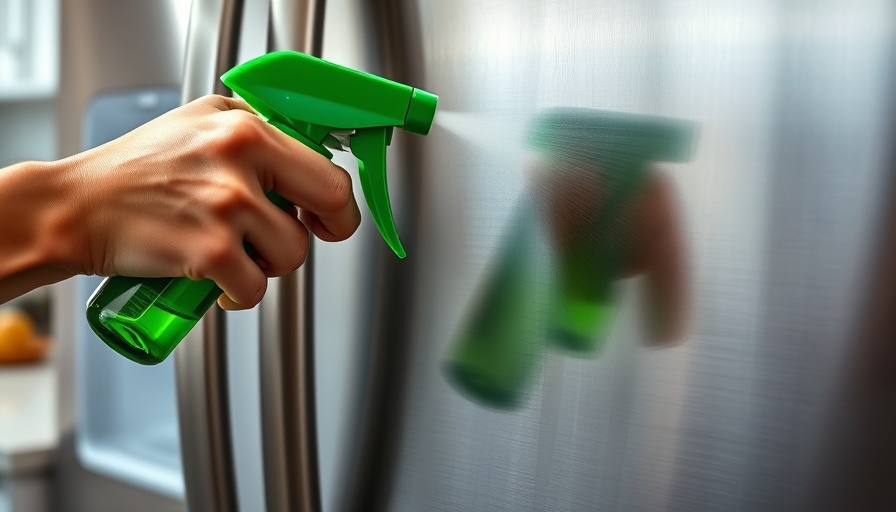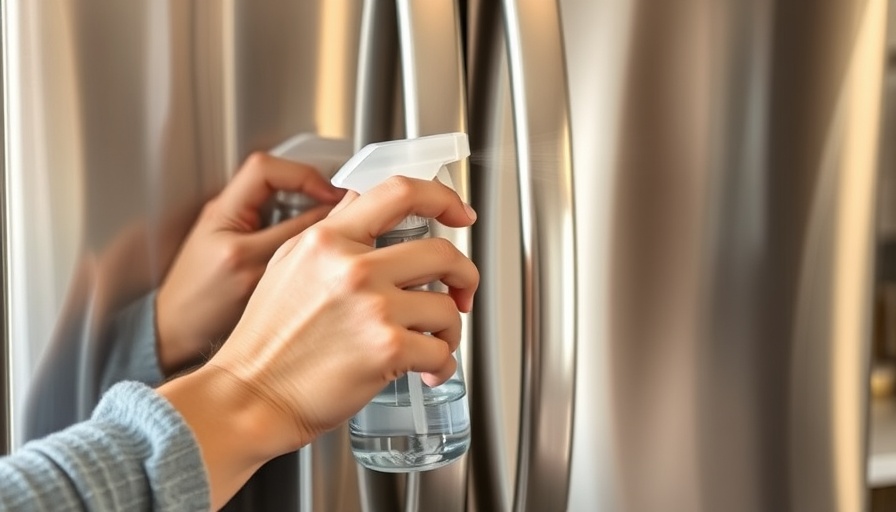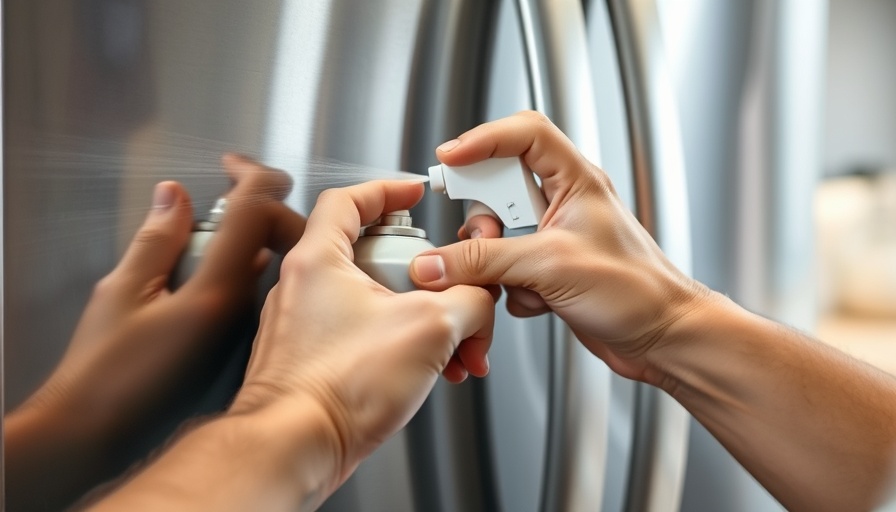
Understanding the Mess: Why Your Kitchen Gets Greasy
The heart of any home, the kitchen, is often the most heavily trafficked area. With every meal prepared, grease and grime unavoidably accumulate. In fact, studies show that grease buildup can harbor bacteria, which can pose health risks. Understanding the sources of this mess is essential for effective cleaning. From stovetops and backsplashes to exhaust hoods, knowing where grease hides leads to better cleaning strategies.
Expert Tips for Tackling Kitchen Grease
Professional cleaners are a treasure trove of knowledge when it comes to fighting kitchen grease, and they recommend approaches that frequently rely on common household items. Here are some expert-recommended methods that are not only efficient but eco-friendly:
- Vinegar and Baking Soda: This dynamic duo works wonders on greasy stains. Spraying vinegar on greasy surfaces followed by a sprinkle of baking soda creates a foamy reaction that lifts grime away effortlessly.
- Dish Soap Magic: A simple mixture of hot water and a few drops of dish soap can be a game changer. Use a sponge to apply the mixture, scrubbing away with circular motions for maximum effectiveness.
- Citrus Power: The natural acidity in lemon juice acts as a natural degreaser. Simply apply the juice to the greasy areas, let it sit for a few minutes, and wipe away to reveal a sparkling surface.
- Commercial Degreasers: For heavy-duty grease, sometimes it’s best to rely on professional-grade products. Look for biodegradable options that are tough on grease but gentle on your home’s environment.
- Steam Cleaning: This method uses high-temperature steam to penetrate grease buildup, killing bacteria and microbes. Investing in a steam cleaner can save significant time and effort.
Making Cleaning a Family Affair
Cleaning the kitchen should not be a solo activity; it’s an opportunity to bond. Engaging family members, including kids, can turn a mundane chore into a fun activity. Teaching children about the importance of cleanliness can instill lifelong habits. Play upbeat music, set a timer, and challenge each other in friendly cleaning competitions. This can transform the experience from a chore to a family event!
How Often Should You Clean?
Regular maintenance is key in keeping kitchen grease at bay. Experts advise a deep clean at least once a month, with spot cleans happening weekly. Promptly wiping down surfaces after cooking can reduce overall buildup. This proactive approach can save residents of Fresno not only time but also the hassle of tackling stubborn stains later on.
Common Misconceptions About Kitchen Cleaning
One common myth is that cleaning is all about using harsh chemicals. Many residents might think that effective cleaning requires strong chemical cleaners, but that's simply not true. Natural ingredients can be just as effective if used correctly. Furthermore, some might believe that daily cleaning isn't necessary; however, regular upkeep can prevent long-lasting damage and health risks associated with neglected kitchens.
The Future of Kitchen Cleanliness: Smart Technology
As technology continues to advance, smart kitchen devices are beginning to include cleaning functions. From smart ovens that self-clean to dishwashers with specialized settings to handle greasy cookware, these innovations make maintaining kitchen cleanliness easier than ever. Consider investing in smart gadgets that not only enhance your cooking experience but also simplify your cleaning routine.
Conclusion: Embrace the Clean Kitchen
Cleaning the greasiest parts of your kitchen doesn’t have to be a daunting task. With the right tools, methods, and a little bit of teamwork, anyone can maintain a pristine cooking environment. Commit to consistent cleaning habits and leverage expert tips to keep those grease stains at bay. A clean kitchen not only looks great but enhances your cooking experience, creating a healthier home. Now is the time to put these methods into practice and enjoy a sparkling clean kitchen!
 Add Row
Add Row  Add
Add 




 Add Row
Add Row  Add
Add 

Write A Comment